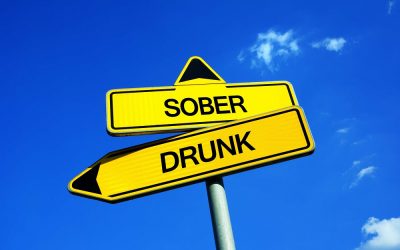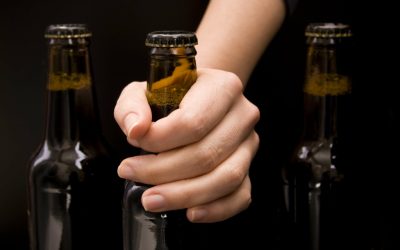Nonetheless, some offenders persist in committing a high frequency of property and violent crimes, even in the absence of substance abuse. Assessment of the severity of a substance use disorder may lead to an actual diagnosis of a substance use or dependence disorder. https://ativanx.com/2019/07/04/finding-parallels-between-and-life-4/ However, most offender treatment programs consider routine use of illicit drugs without a diagnosable disorder to be a legitimate focus for treatment, since any use is illegal and may result in arrest or violations of community supervision guidelines.
Emerging Treatment Technologies

Only the 4 percent of prison releasees who had served terms longer than five years—almost all of whom were convicted murderers, rapists, and armed robbers with multiple convictions—had a lower rate of rearrest (by about 14 percentage points) than the others. The lack of correlation of length of imprisonment (up to five years) with the probability of rearrest held steady after controlling for a variety of separate factors that predicted rearrest. When setting addiction goals, it is important to know what you want and how to achieve it. Knowing what you want to achieve will drive away distractions and help you keep your eye on the prize. An example of a specific goal would be “I am going call my sponsor once a month” instead of the vague goal of “I am going to maintain my support network”. Goals are important for staying on track and help to reaffirm your recovery process.
What Are the Goals of Addiction Treatment?
- It’s all too easy to fall through on commitments when you’re the only one that knows about them.
- The addicted life is passive and reactive; the recovery lifeis conscious and proactive.
- In talking about change, the clinician often suggests a course of action,then negotiates with the client to determine exactly what he is willing todo.
By setting SMART goals and following these tips, individuals in addiction recovery can establish clear objectives and work towards a successful and sustainable recovery journey. The only way to treat this serious disorder effectively is through professional therapeutic interventions, such as behavioral modification, support groups, motivational therapy, and antidepressant medications. A rehab program that addresses both http://apachan.ru/colchek/?id=15850 depression and addiction may help to stop the progression of both disorders and empower the individual to build a healthy, sober life in recovery. Clinicians must assure their clients that they will listen carefully and makeevery effort to understand the client’s point of view during a briefintervention. Brief interventions are by definition time limited, whichincreases the difficulty of adopting such an attitude.

Alcohol consumption (in liters of pure alcohol)

For another fraction of applicants, even partial recovery as a result of the particular treatment episode is unlikely, although a period in treatment may plant or nurture the seeds of more serious efforts toward treatment and recovery in the future. Technological advancements are changing not only the face of health care generally, but also the treatment of substance use disorders. In this regard, approximately 20 percent of substance use disorder treatment programs have adopted electronic health record (EHR) systems.
The Risks are Real
Older adults present unique challenges in applying brief interventionstrategies for reducing alcohol consumption. The level of drinking necessaryto be considered risky behavior is lower than for younger individuals (Chermack et al., 1996). Interventionstrategies should be nonconfrontational and supportive due to increasedshame and guilt experienced by many older problem drinkers.

Sticking to Your Recovery Goals
- They can help you assess your current situation, identify potential challenges, and tailor goals that align with your unique needs and circumstances.
- The good treatment plan is a comprehensive set of tools and strategies that address the client’s identifiable strengths as well as her or his problems and deficits.
- The use of telehealth to deliver health care, provide health information or education, and monitor the effects of care, has also rapidly increased.217 Telehealth can be facilitated through a variety of media, including smartphones, the Internet, videoconferencing, wireless communication, and streaming media.
Sorting out the effects of program activities on the clinical client versus their effects on the criminal justice client is no easy matter. Is an individual to be counted a treatment success or a treatment failure if he or she complied perfectly with treatment rules but dropped out of treatment early when convicted and imprisoned on a preexisting felony charge and is still in prison at the 12-month follow-up? Is a client a treatment success or a treatment failure if he or she is on probation, refrains from drug-seeking behavior, but continues to live by larcenous activities—avoiding rearrest during the 12-month follow-up period? Should the client whose parole officer insists on almost daily contact be equated analytically with the client whose probation officer wants no more than a quarterly postcard?
The Transformative Power of SMART Goals in Recovery
For example, improve physical and mental well-being through exercise and mindfulness. Providing SMART goal examples can help individuals understand how to set specific, measurable, achievable, relevant, and time-bound objectives for their recovery journey. SMART recovery goals that are measurable include answers to questions like “how many” or “how much.” For example, http://nomer-doma.ru/list.php?r=&c=&tr=&n=&view=full&ord=&page=94 “I will eat healthier” is not a measurable goal, because it can be hard to track whether a person is eating more nutritious foods than they used to. Instead, a person may want to try saying “I will eat one serving of vegetables every day.” Setting specific and measurable goals during recovery helps a person tell for sure whether or not they are meeting their goals.

Leave a Reply